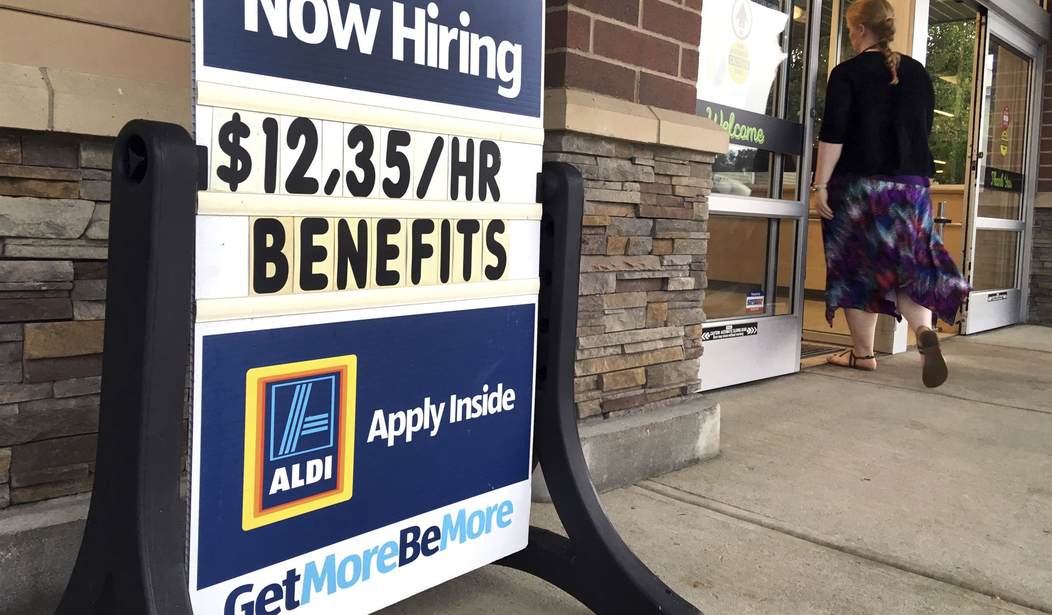For the first time in months, the economy actually overperformed the predictions of most economists, adding 850,000 jobs. The original projections had foreseen a little over 700,000 new jobs. That was the good news. What caught those same analysts by surprise was that the unemployment rate ticked up one-tenth of a point to 5.9 when it had been expected to drop to 5.6. Even if that expectation had been met, it still would have been considerably higher than the record low of 3.5% we enjoyed in February of last year before the pandemic sent everything spiraling to hell in a handbasket. The other main story behind these numbers, however, remains that struggle that employers are encountering in looking for workers to fill all of the positions they need to fully reopen. (NY Post)
The US added 850,000 jobs last month — topping economists’ expectations for 706,000 jobs added — as Americans continued to emerge from the pandemic and businesses scrambled to hire new workers, the feds said Friday.
June’s gain comes after the country added 559,000 jobs in May…
Hiring was not nearly as robust as many economists expected through the spring. The jobs report disappointed in both April and May even as job openings soared to a record 9.3 million.
We should probably take good news anywhere we can find it these days, and with more and more parts of the country either at or approaching fully reopened status, a surge in hiring was to be expected. But if we’re going to get anywhere near those pre-pandemic levels, we should really be adding at least one million jobs per month over a sustained period.
New jobless claims were also down to 364,000, which is the lowest we’ve seen since the start of the pandemic. But there are still 3.5 million Americans collecting traditional state unemployment benefits, so there’s a long way to go on that score. So why aren’t we rebounding faster?
Economists are telling us that there are a variety of factors in play, most of which we’ve touched on here before. In the states where federally enhanced unemployment benefits are still being paid, it’s simply not worth it for some people to go back to work. Others may still be fearful of contracting COVID or be struggling with childcare issues.
But as the linked report suggests, the pandemic may have produced another effect in terms of fundamentally altering American perceptions of employment, creating a “restructuring of the labor market.” There are probably a lot of people out there who never seriously considered working from home, but now that they’ve had a taste of it, they’ve decided they would like to continue. This is causing employers to scramble to either replace them or determine whether remote working is sustainable over the long term.
We’re also hearing about workers in lower-paying industries, particularly foodservice and retail sales, taking a fresh look at their options and choosing not to go back to their old jobs. That lack of workers in those industries is already driving some employers to increase wages and add on benefits to tempt people to apply. That’s great news for those workers, but it’s also causing the prices of nearly everything to rise. If this type of inflation continues to expand, we could wind up back in Jimmy Carter territory before too long. And those of you not old enough to remember those days should probably take a walk through your history lessons. It wasn’t pretty.
We’re not going to have a good handle on exactly where we’re going to land until all shutdowns and restrictions from the pandemic are fully lifted. And that target date will still depend on whether or not the CDC decides to hit the panic button again over the Delta variant and try imposing a new round of restrictions. We’re not out of the woods yet, folks, but we’re getting there… hopefully.








Join the conversation as a VIP Member